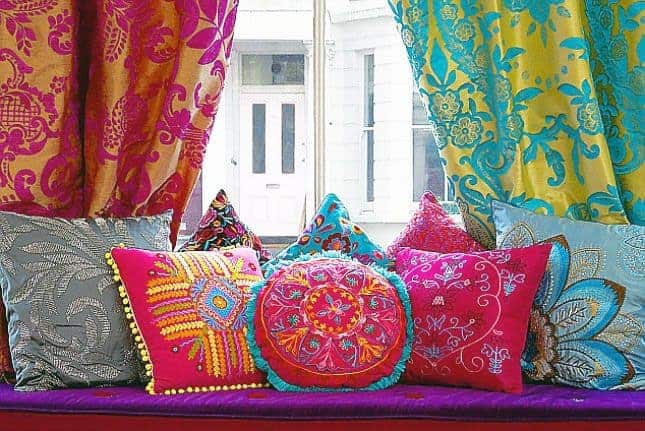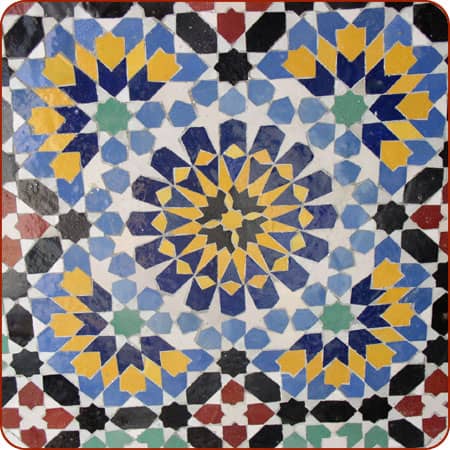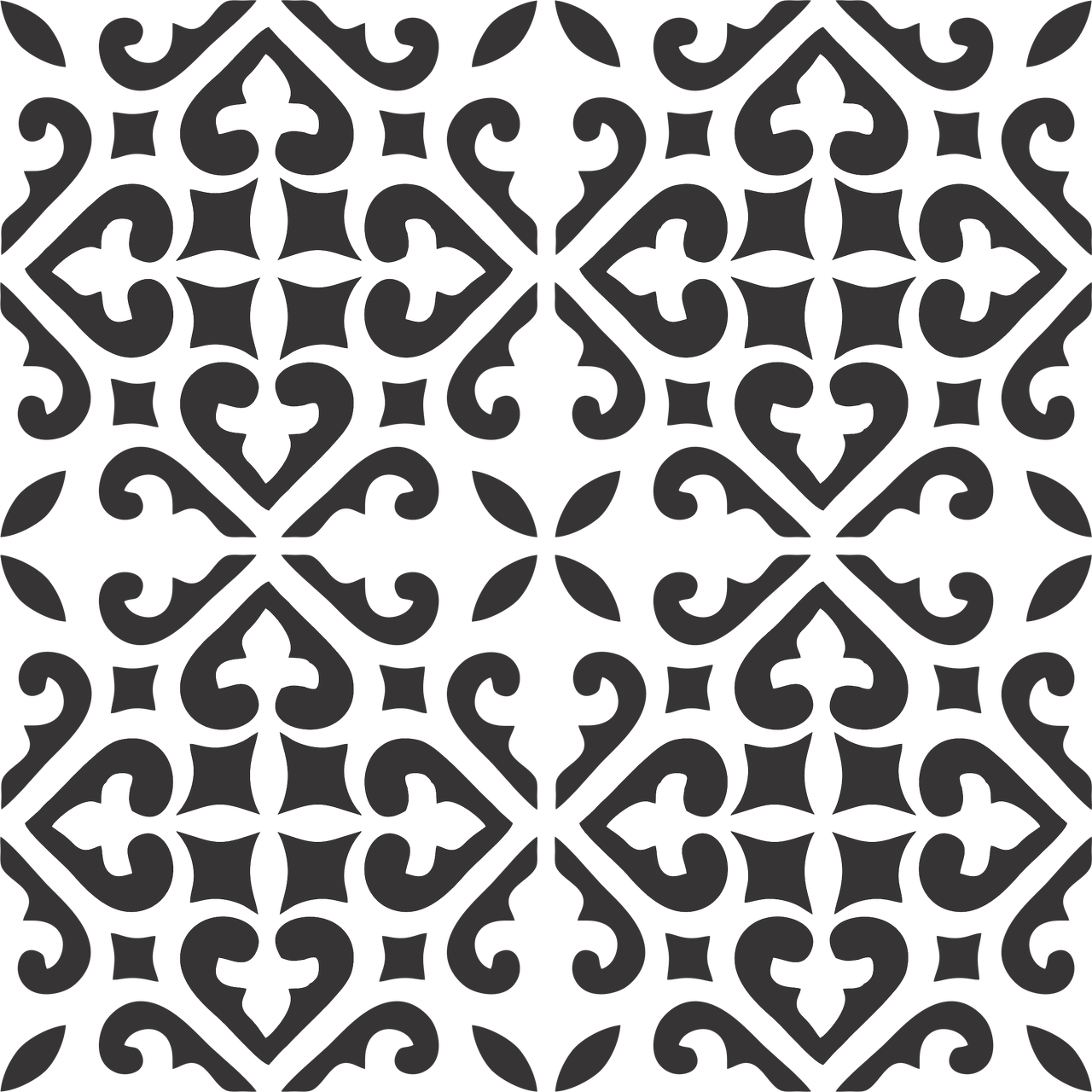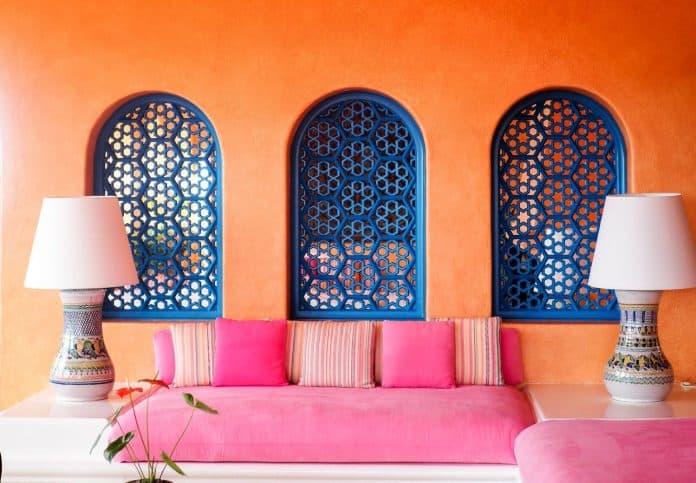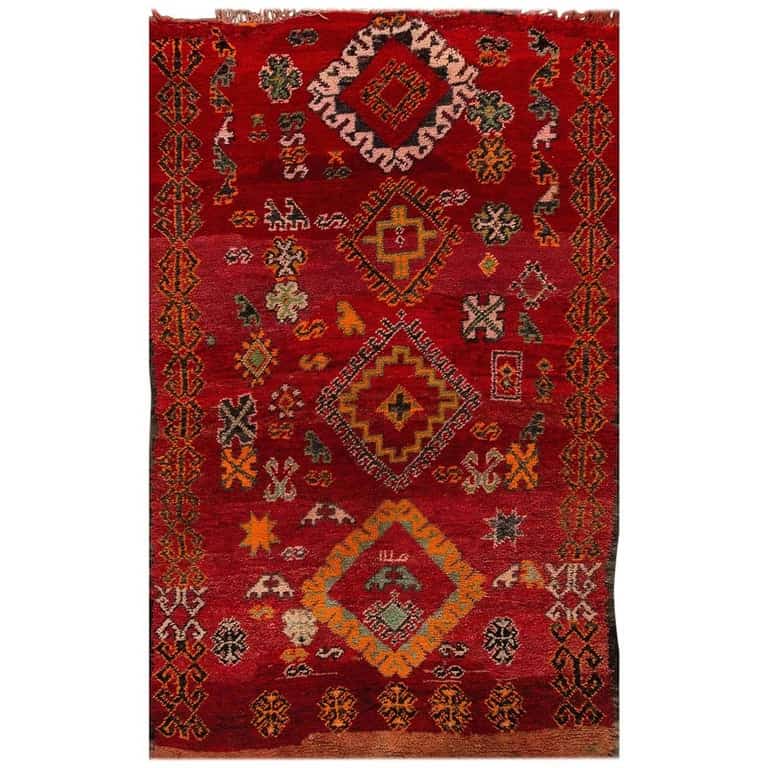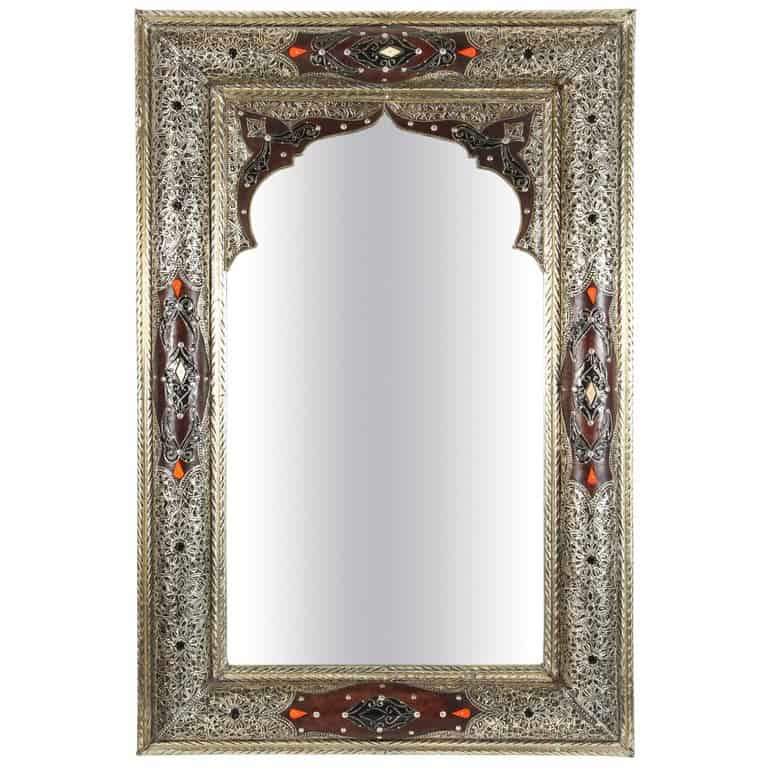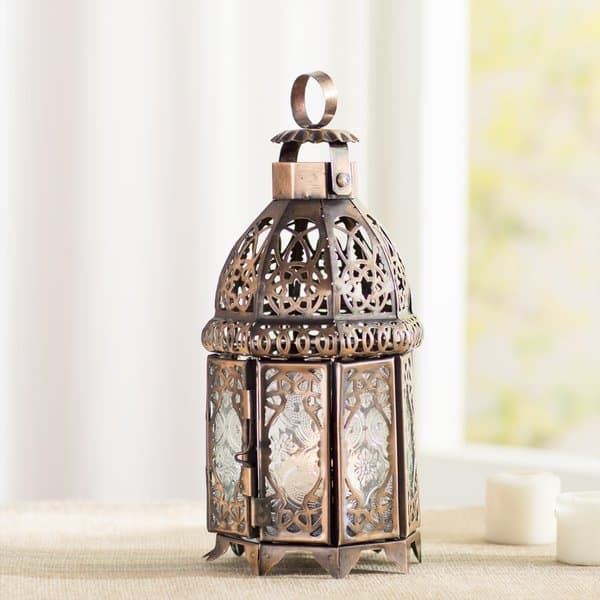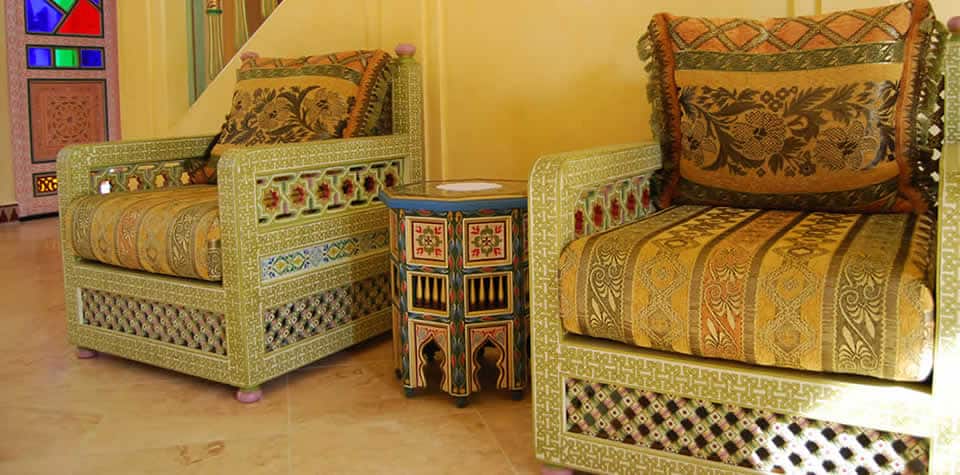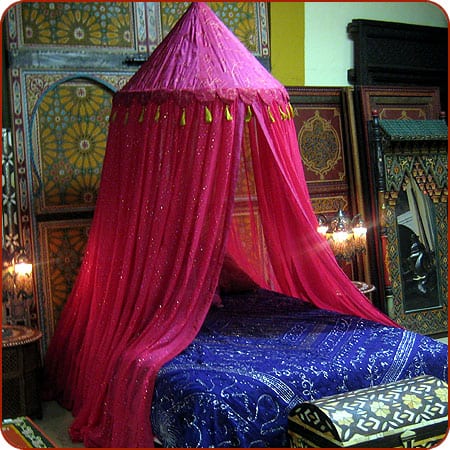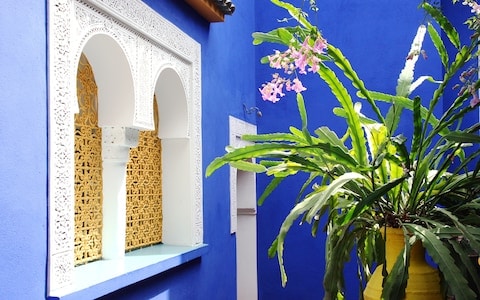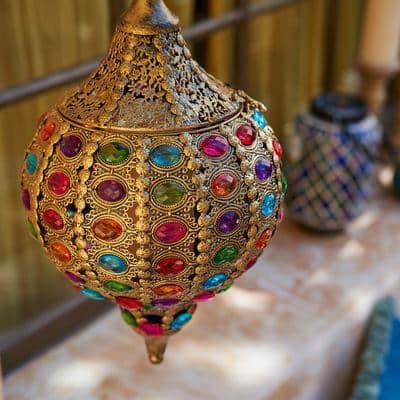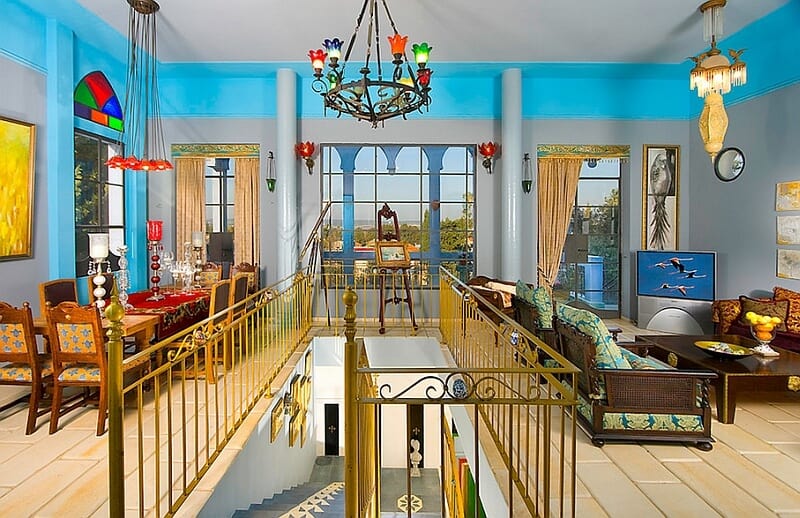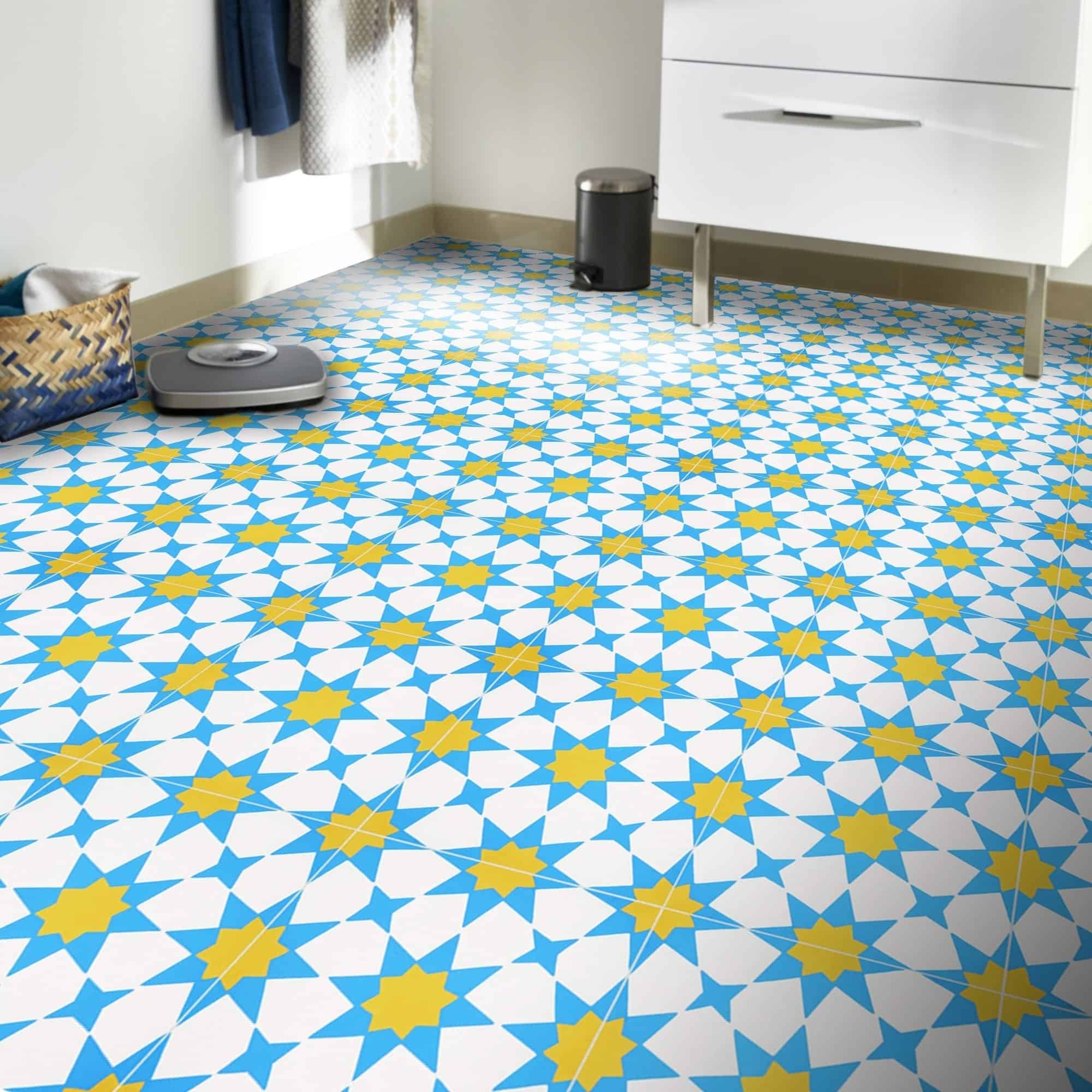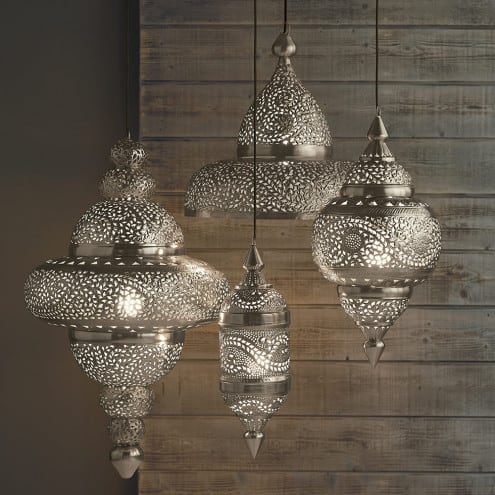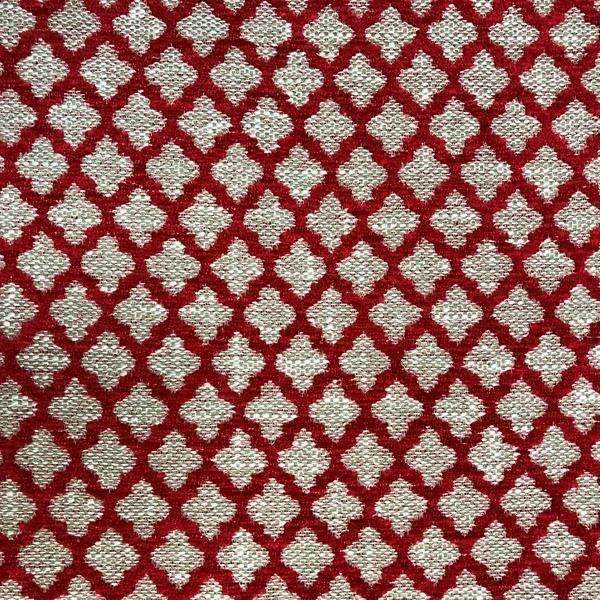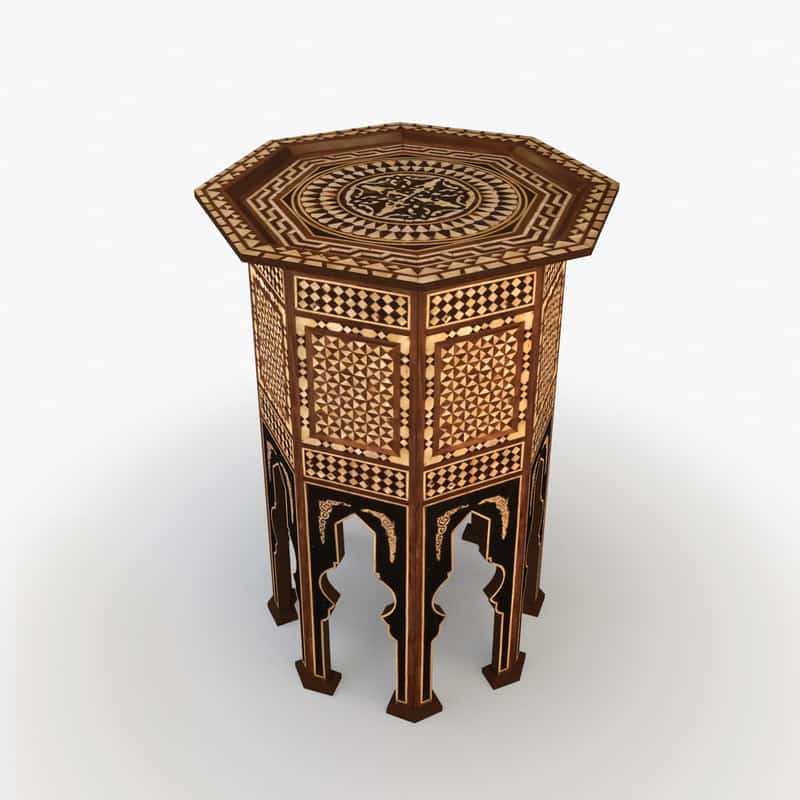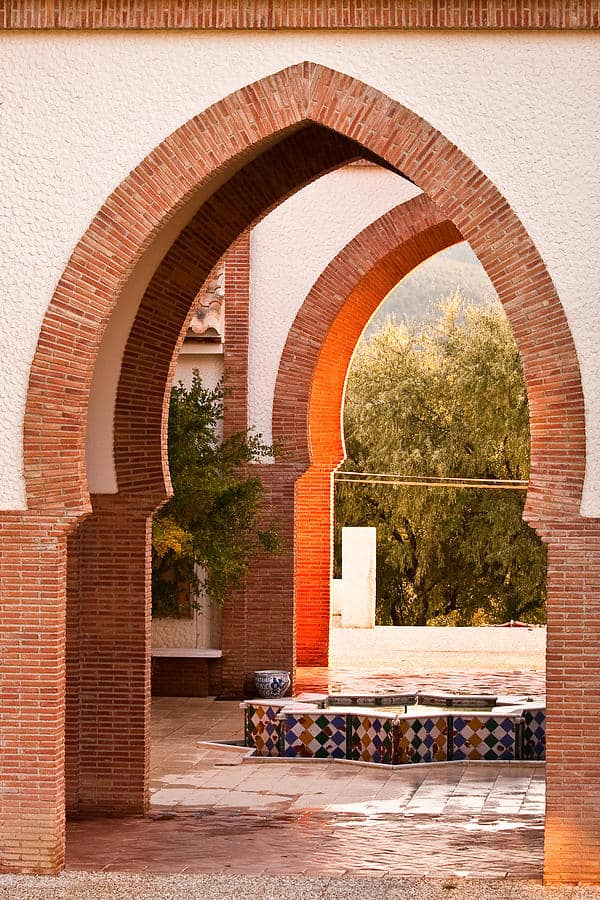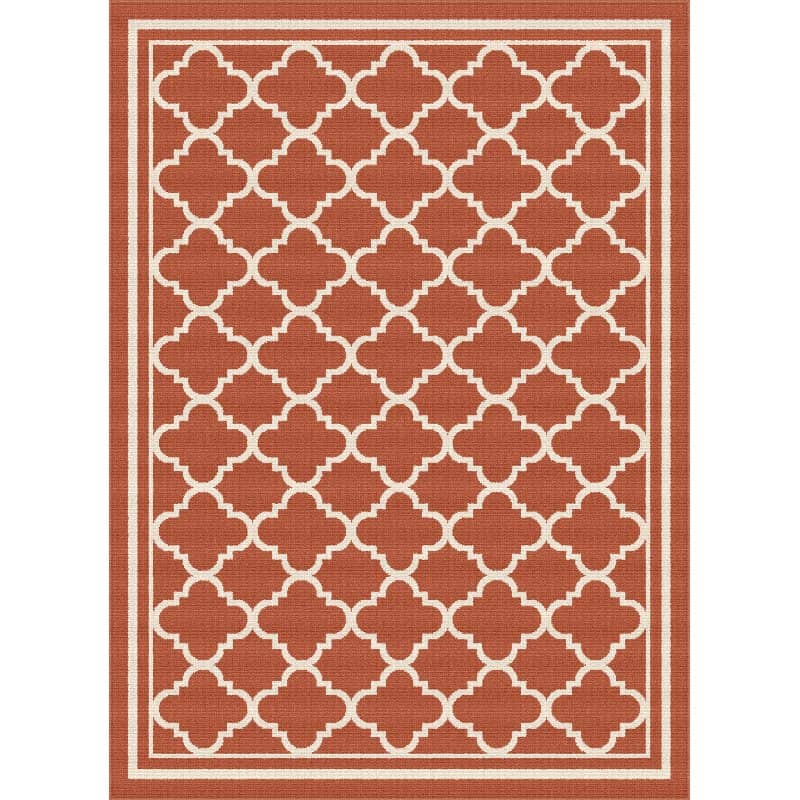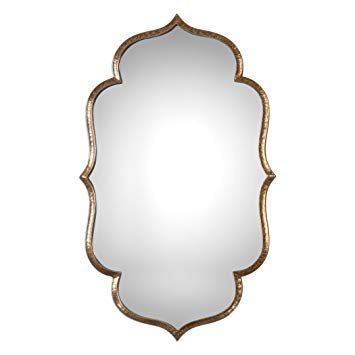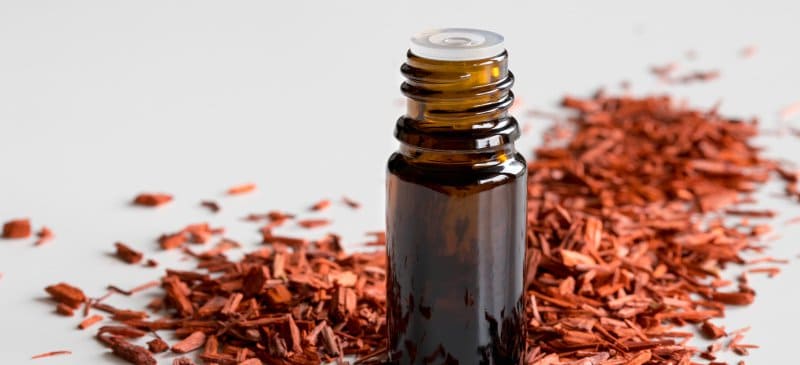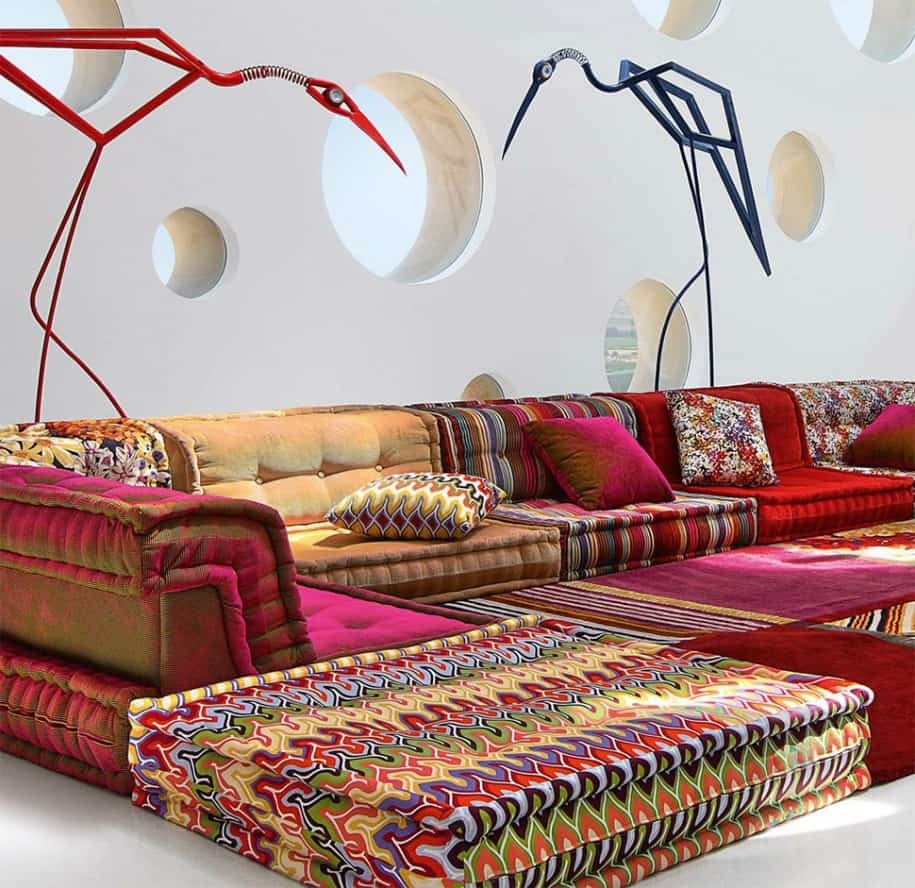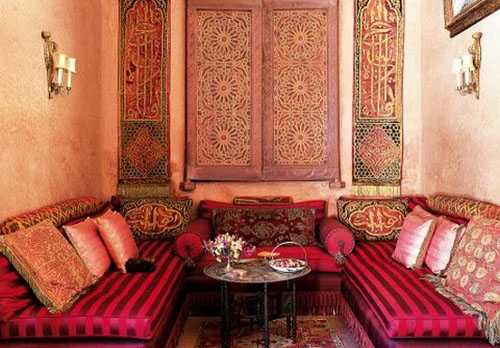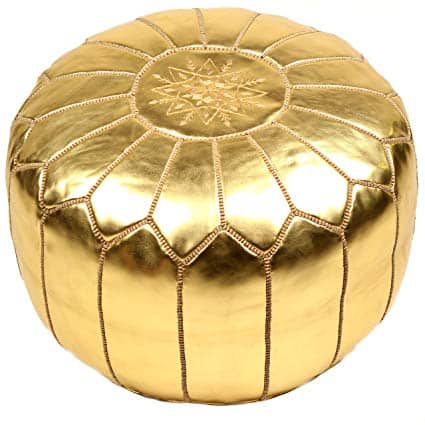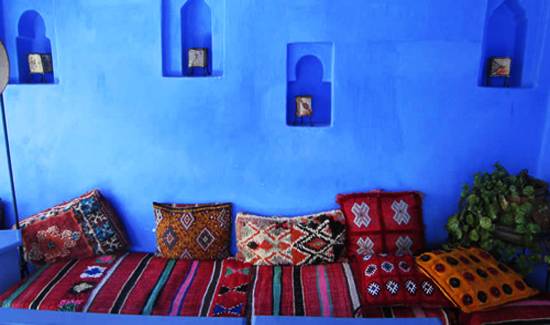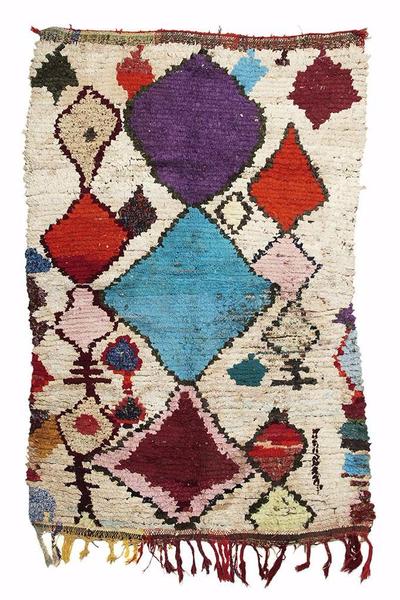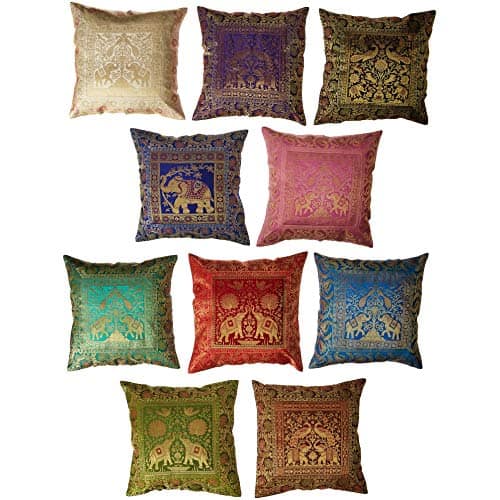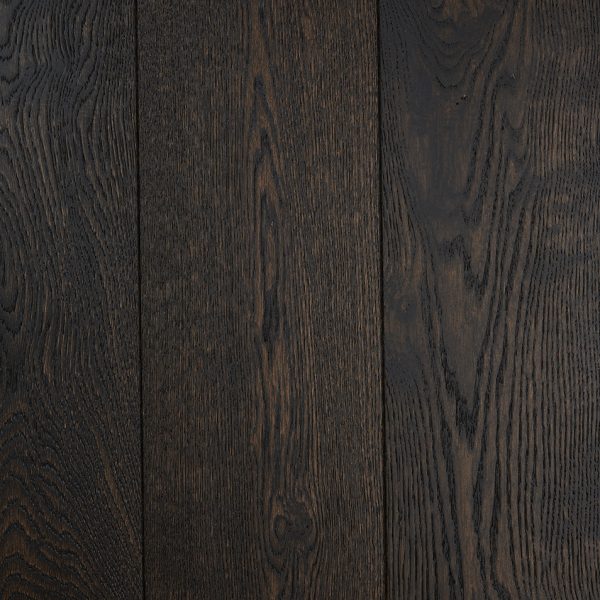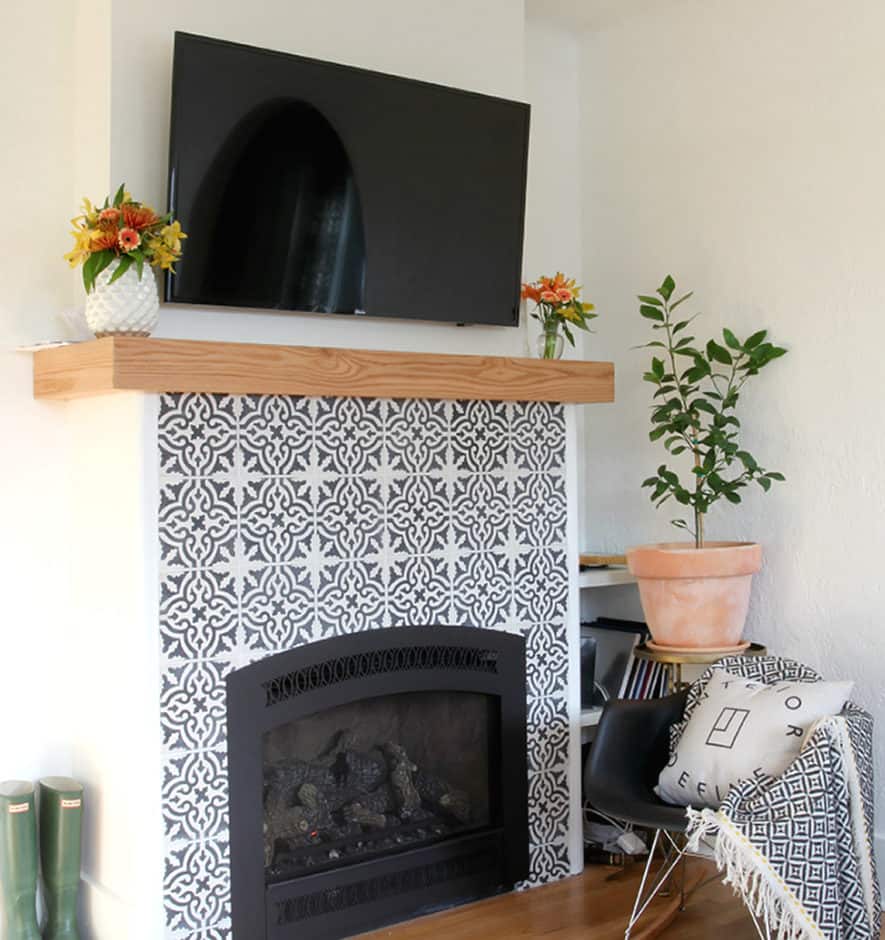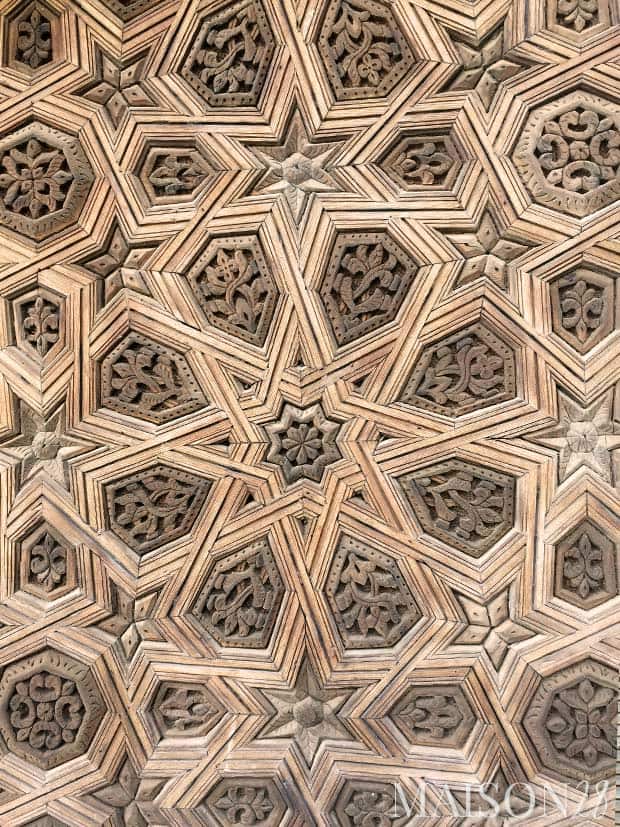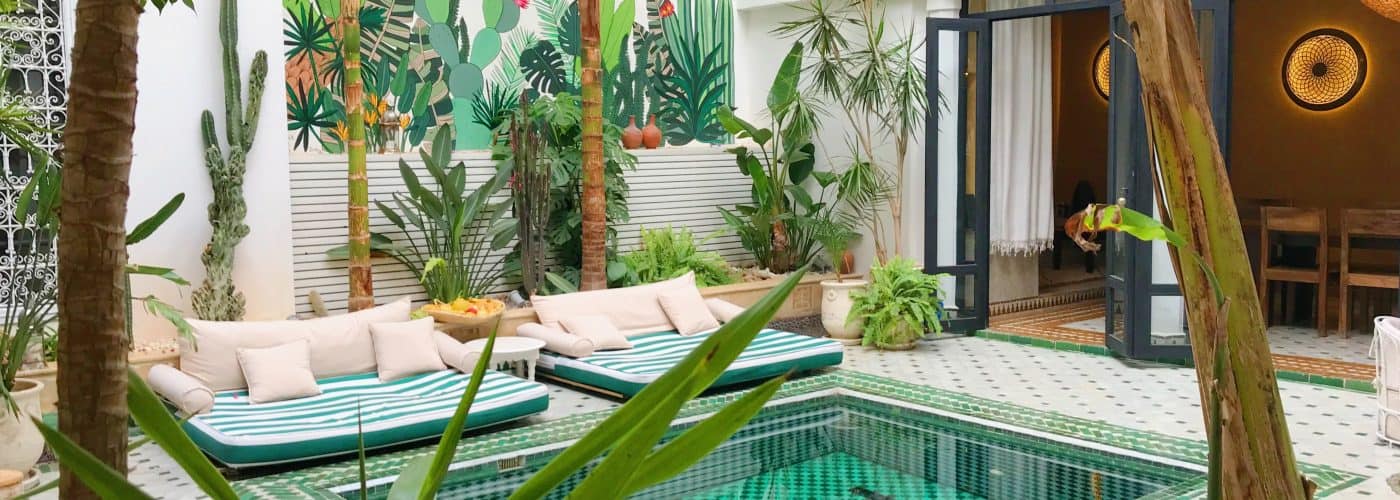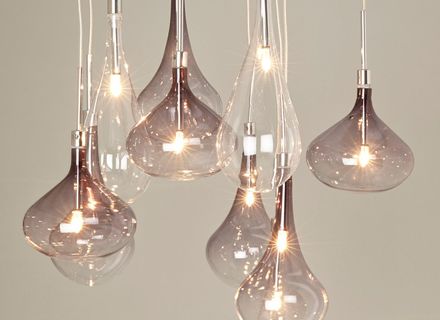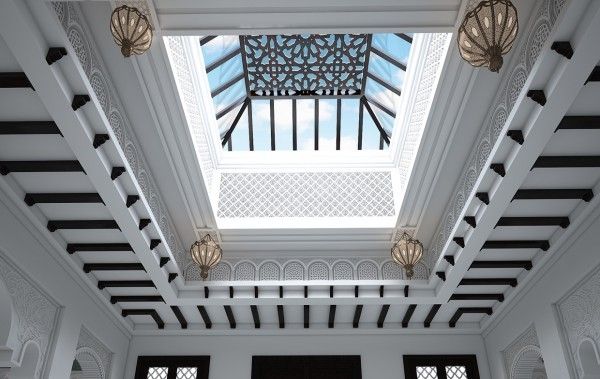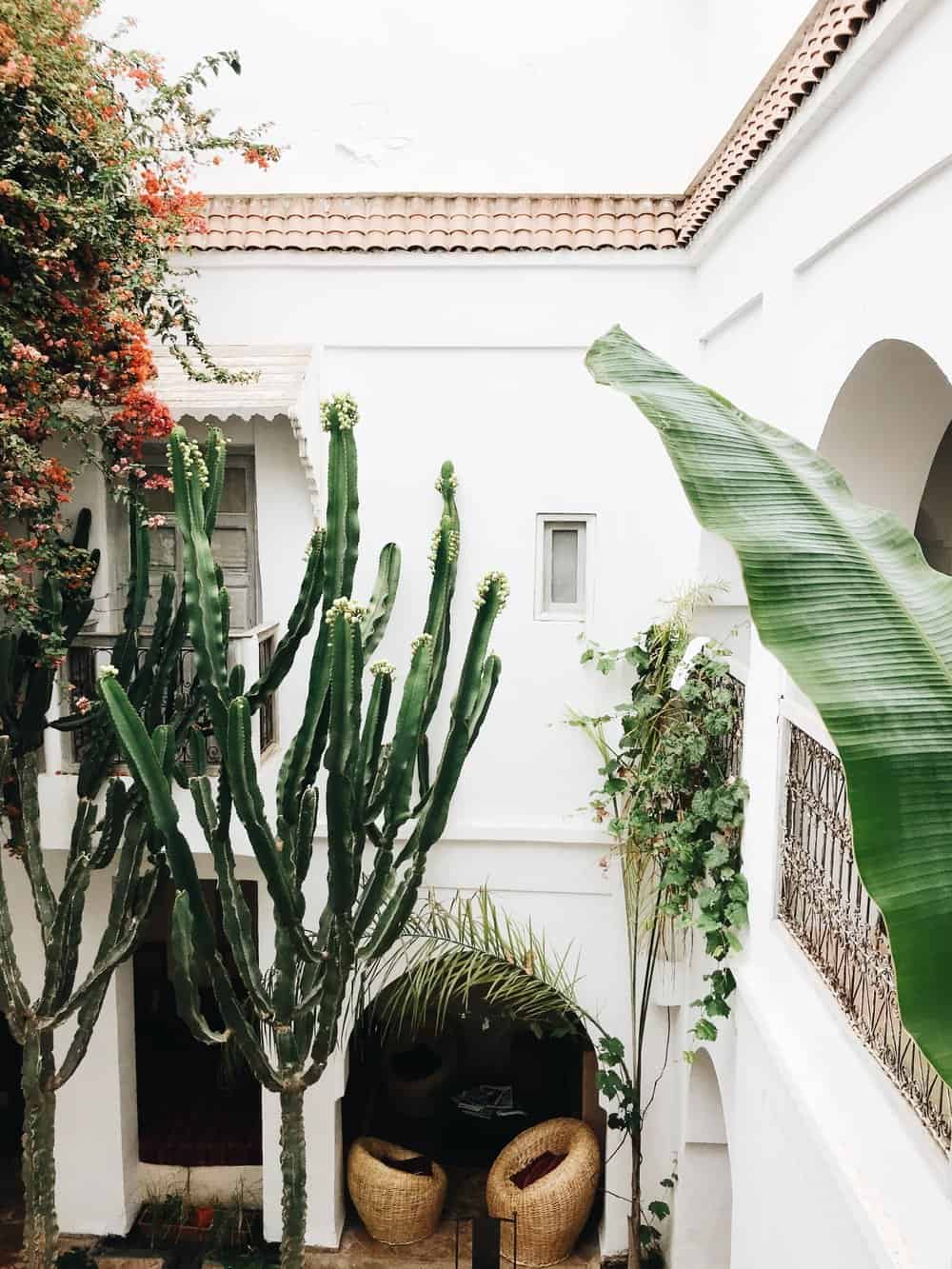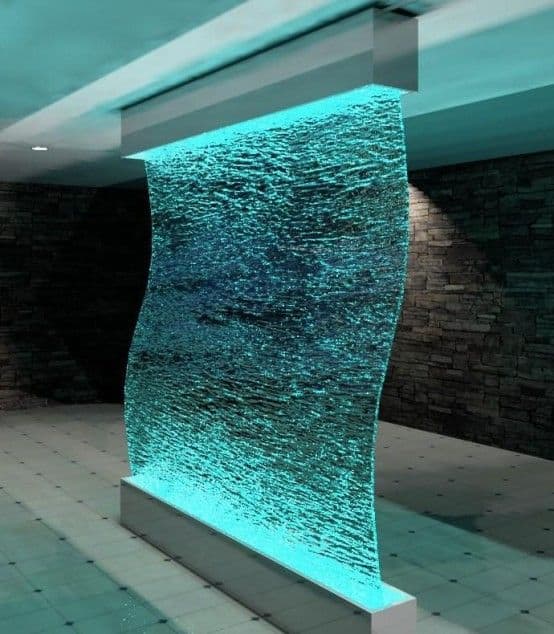Moroccan design is immediately recognizable as a distinct style, even if the viewer can’t name the source. With its vibrant colors, geometric patterns, beautifully worked wood, and hallmark Moorish arches, it’s a beautiful and whimsical style that brings a warm, exotic feel to a room without looking like a cartoonish theme design.
To add Moroccan elements to your home, try low, comfortable furniture, rich fabrics as draperies, metallic accent pieces, bold and bright walls, and large tropical house plants. Even a small nod to Moroccan design will bring an earthy, luxurious element of beauty to any space.
1. Metal Work

One of the hallmarks of Moroccan design is elaborate metalwork be it on a mirror, lantern, bed frame, or another household item. Look for scrollwork, geometric designs, and the classic Moorish or Islamic keyhole arch for a truly authentic feel.
Gold and silver are perfect complements to Moroccan design, but brass and other metals can work beautifully. If you only select one Moroccan design piece, try a beautiful metalwork mirror for the perfect accent.

